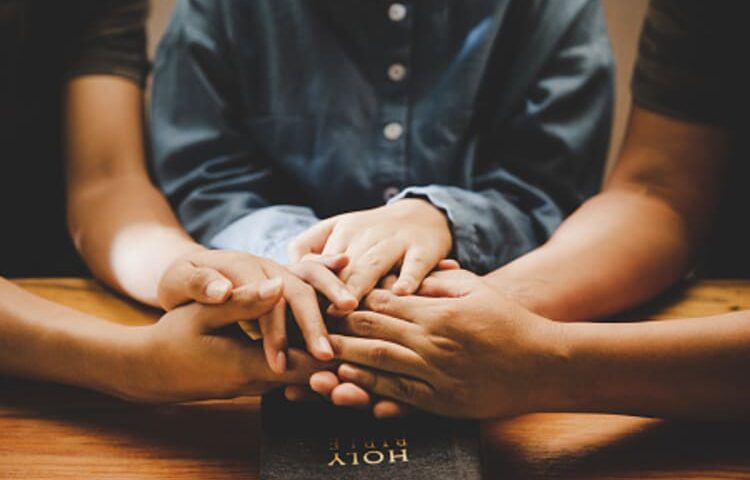Session 2: Gratitude Is Not About Who We Like Or Dislike
We continue to work through the RightNowMedia study of Gratitude Is Not Thanksgiving by Jason Turner.
Overview
We are created to live in community with other people and in the family of God. Lovingly relating to other believers is an identifying marker as a believer. God is also concerned about how we relate to all people. Turner walks the audience through how Christians are called to live this way through four biblical principles Paul shares in his letter to the Thessalonians.
Session Goals
Every session has specific goals—things you want your group to walk away knowing, feeling, and committing to do.
- Main idea: Living with a grateful attitude helps us to relate to others with grace, love, and kindness.
- Head Change: To realize the importance of how we treat other people, especially those who are different from us.
- Heart Change: To respond with graciousness to others in your community.
- Life Change: To have a mindset of reconciliation with others just as in Christ, God was reconciling the world with Himself.
Open
We are called to live in community with one another. Share a way that you live this out in your life. What effect has it had on your life to be in community with others, both believers and non-believers? Has there been a time you’ve seen the effect you have had on someone else?
It can be difficult to overcome our own opinions or judgments about others and miss opportunities to show Christ’s love through our actions toward them. Turner walks the audience through practical ways to respond more graciously.
Read & Watch
Start each session with the anchor passage: 1 Thessalonians 5:15–18.
Now, focus on 1 Thessalonians 5:13b–18.
Show Session 2: Gratitude Is Not about Who We Like or Dislike (17 minutes).
Discuss
Grateful people are responsive to the needs of others, and 1 Thessalonians 5:14 outlines how to have a gracious response.
Paul gives four imperatives:
1. Admonish the idle
2. Encourage the disheartened
3. Help the weak
4. Be patient with everyone
Before we break down each of these imperatives, read John 13:34–35. These verses distinguish love as the identifiable badge of every believer. Further, God is not only concerned about how we are lovingly in relationships with other believers, but He is also concerned about how we relate to all people. We must show love and be at peace with one another.
With each imperative, you can pause before the explanation and ask your group to share examples of how they would be able to live out each point Paul outlines.
Now, let’s expound on each imperative. It’s important for believers to warn those who are idle in an advisory way, not a condemning one. This could be about other Christians who are not progressing in their walk with God or anyone who is not displaying appropriate, Christ-like behavior. Sharing potential consequences for their actions is one way this can be accomplished.
It is important to encourage and comfort one another when someone is discouraged or depressed. When it comes to our friends or family, this is typically more second nature. But we also need to look for ways to encourage those who we might not be as close to during difficult times. How can we do this? Offer to help with tasks that might seem difficult to them while they are in this state. Sometimes a person just needs to be heard. Be that listening ear. You might be surprised how easily someone will open up because they simply need someone to talk to. You can also let them know about resources that might help their situation.
Next, God wants us to help the weak. Contrary to the well-known phrase, “God helps those who help themselves,” the Bible stands in contradistinction to that notion. Isaiah teaches us in Isaiah 40 that God gives power to the faint and to those who have no might He increases strength. Therefore, don’t abandon them. Help them along the way. Walk with them as they navigate the situation. What does this look like? Can you think of a time you were able to help someone who is weak in the wider community and those who are closer to your sphere of influence?
Lastly, God needs us to be patient. When it comes to how we respond to others, we must be even-tempered. Sometimes, it can be difficult not to get exasperated by how others are choosing to behave. But we must be slow to anger. This is especially important to those who might not be living as mature Christ followers. Give them grace to grow. Has there been a time that you were able to be that person to someone else? Did you respond appropriately with patience, or did you struggle to implement this command?
Last Word
The overarching directive Paul gives that plays a role in all four of these principles is showing love and being at peace with one another. If Christ followers remember what was done for them at the Cross at Calvary, they will arrive at a place where there is no offense so great that one cannot find a way to make amends and discover a peaceful resolution. Be gracious and kind to others. Turner explains we are full participants in the ministry of reconciliation. In verse 15, Paul is speaking directly to believers, calling them not to get caught up in a never-ending cycle of needing to feel vindicated. Sadly, in the world that we live in, we have magnified our differences and ignored the places where we are the same. However, in Christ, we have peace with God. In Christ, God was reconciling the world with himself and entrusting us with the message of reconciliation.
